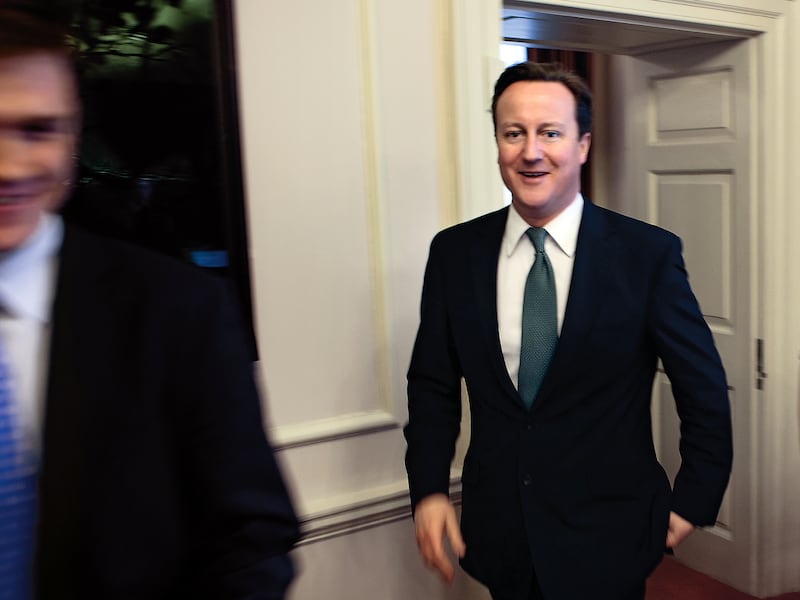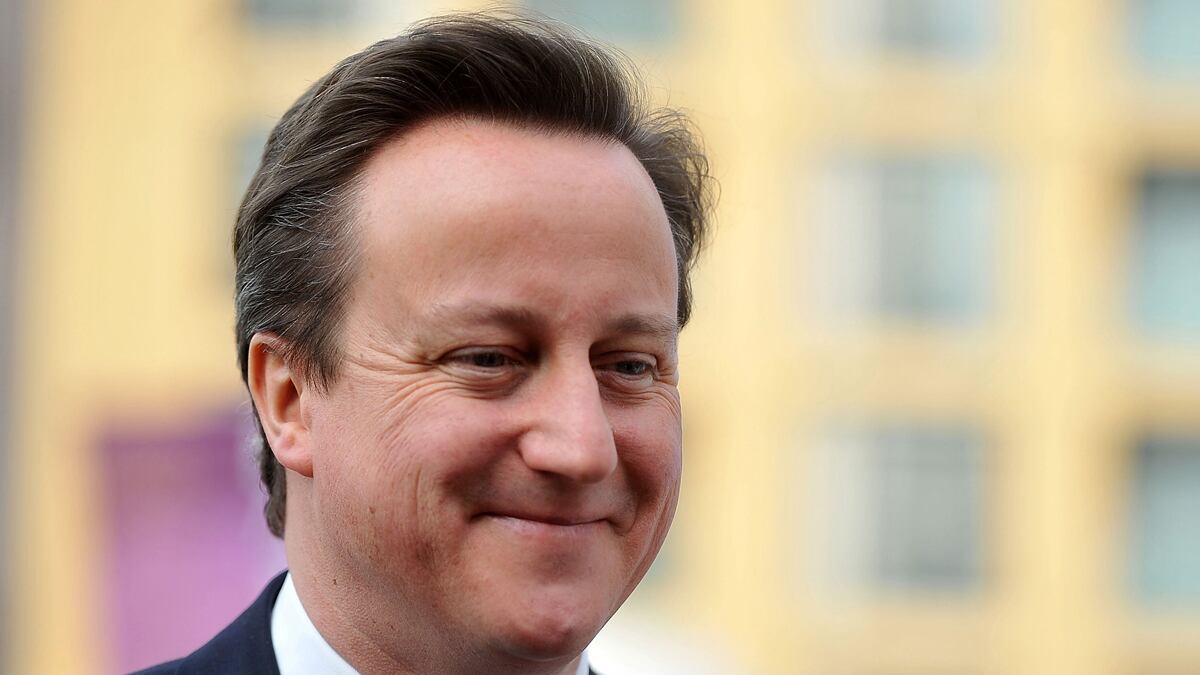Washingtonians woke up Tuesday morning to an unusual opinion piece in The Washington Post titled “A Special Relationship Endures.” Its authors: Barack Obama and David Cameron.
After a chilly start between the two leaders in the aftermath of the BP oil spill two years ago, President Obama is rolling out the red carpet for the British prime minister, taking him to a March Madness basketball game in Dayton, Ohio, and putting on a full formal dinner at the White House on Wednesday evening.
The White House press corps wanted to know why Obama chose a lower-ranked team to show off a slice of American life to Cameron when the Chicago Bulls are playing at home Wednesday evening. Couldn’t the men just duck out a little early from the dinner, one scribe suggested. “I’m sure Mrs. Obama would frown on that,” laughed Heather Conley, director of the Europe program at the Center for Strategic and International Studies. She likes what she sees, which is “a real purposeful effort to honor this relationship and deepen it personally. If that means going to see some hoops, Godspeed,” she says. “It’s about creating that close tie.”
Going back to Churchill and Roosevelt, Reagan, and Thatcher—even Bush and Blair, though their pairing over the botched Iraq War was more controversial—American presidents have long sought to strengthen ties with Britain. In the hours of talks set aside in addition to their informal time together, Obama and Cameron will be conducting what Conley calls “a tour de force of the hottest global spots,” and that speaks to the length and breadth of the special relationship. She notes that a special committee in Britain recently examined doing away with the phrase, if only partly in jest, but Obama isn’t buying that. Just last week, he called Britain “our closest partner in the world.”
“If that doesn’t raise an expectation, I don’t know what does,” says Conley. You have to search to find daylight between the U.S. and British positions on virtually any issue, and that must be heartening to both men as they navigate the world. Cameron arrives in Washington as Obama is reeling from the horrific killing of civilians by an American soldier on a rampage, and the week after six British soldiers were killed in the single biggest loss of life in one event in Afghanistan since 2006. Cameron has already pledged to pick up the pace of British withdrawal of troops from Afghanistan, and Obama is faced with new pressure to hasten the U.S. exit.

The two men will have to talk through the risks and consequences of leaving—and of staying—and what they say in their joint public statement will set the tone and tenor going forward, not only for the U.S. and Britain, but for NATO and the other allies. Conley notes that there are already “cracks in the coalition.” French President Nicolas Sarkozy, in the midst of a hotly contested election, has said French troops are coming home; his Socialist rival is calling for a faster timetable. “It doesn’t take much to shake them,” Conley says of America’s European allies. “They too are vested in success, but the political toll is costly. They’re in the same boat we are, just a different scale and scope.”
Just as the loss of the British soldiers reawakened public opinion against British involvement in Afghanistan, the unprovoked slaughter of Afghan civilians by a U.S. soldier, coming on the heels of the Quran burnings, has prompted calls for a reassessment of the decadelong mission in Afghanistan with an eye toward ending it sooner than the planned 2014 withdrawal. Republicans, who have been hawkish on the war, appear to be reassessing as well. Newt Gingrich said, “I think that we're risking the lives of young men and women in a mission that may, frankly, not be doable." A Washington Post/ABC News poll showed 60 percent of respondents saying the war in Afghanistan has been “not worth fighting.”
The gathering steam behind the anti-war sentiment is a reminder of how quickly attitudes can change in a super-heated election year. Just a week ago, Obama was tamping down talk of military action against Iran, and was looking to Cameron to bolster him in making the case that an Israeli strike at Iran’s nuclear facilities is at best premature, and at worst counterproductive. Iran has now been overshadowed by a more immediate challenge to Obama’s Afghan strategy, as well as his reelection strategy. It would be ironic if Obama is the one holding fast to a 2014 timetable, and the Republican nominee—in what would be a 180-degree turn—decides to advocate for faster withdrawal. Given the pace of events, and the stakes, it’s not unthinkable.






